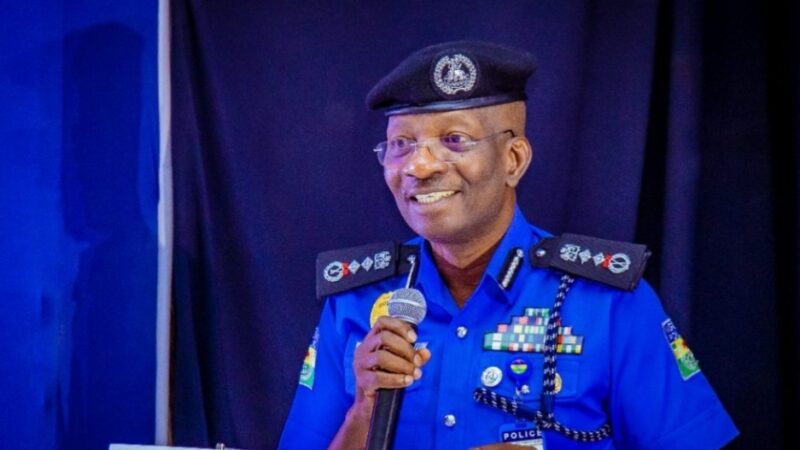The Inspector-General of Police (IGP), Kayode Egbetokun, has issued a firm directive to officers of the Nigeria Police Force (NPF) to refrain from involvement in land disputes and other civil matters.
In a video shared on the Force’s official X handle on Thursday, the IGP emphasized that police officers “have no business escorting parties for land recovery.” He stressed that the NPF is not a tool for private interests and warned that officers engaging in such activities risk bringing the Force into disrepute, adding that disciplinary action would be taken against any erring personnel.
“Let me reiterate without ambiguity, the Nigeria Police Force is not and will never become an enforcer for private interests. Officers have no business escorting parties for land recovery business, disrupting legally existing occupations, or meddling in civil cases without a demonstrable criminal element,” Egbetokun stated.
Advertisement
READ MORE : Unknown Gunmen Abduct High Court Judge’s Daughter, One Other In Nasarawa
He further noted, “Every such incident erodes the neutrality of the Force and opens us up to disrepute. The line must be clear and any officer who crosses it must face disciplinary consequences.”
In a related development, the IGP officially inaugurated a nationwide training program for police operatives on the use of the newly introduced Criminal Database Systems, describing it as the “nervous system of 21st century Nigerian policing.”
Speaking in Abuja at the opening of the program, Egbetokun highlighted that the initiative marks a shift from reactive policing to a proactive, intelligence-driven model built on data, predictive analysis, and international collaboration.
“This training is more than an exercise. It is a declaration that the NPF has stepped into a new era. Without data, there is no memory. Without memory, there is no justice. But with data, there is no hiding place for criminals,” he declared.
The IGP acknowledged that one of the major challenges facing Nigerian policing had been poor record-keeping, scattered files, and fragmented intelligence, which often resulted in stalled prosecutions, lost cases, and diminished public trust.
“For too long, Nigerian policing has been limited by weak records, scattered files, and fragmented intelligence. That era ends today. With the support of the Federal Government and our partners, we are building a system where every arrest is recorded, every case is documented, and every officer is accountable. No case will vanish into forgotten files. No conviction will disappear into silence,” Egbetokun added.
The police chief emphasized that public trust begins with accurate record management, assuring citizens that complaints would be properly recorded, monitored, and resolved.
Egbetokun stressed the pivotal role of operatives undergoing the training, noting that they would act as custodians of national crime data at divisional, zonal, and state levels.
“Every case you enter, every record you preserve, every link you verify, will strengthen justice in our nation. You are not merely handling files; you are safeguarding the future,” he said, adding that diligence and accuracy could determine whether criminals evade justice or are held accountable.
Linking the initiative to Nigeria’s global policing commitments, the IGP explained that the system would integrate with international databases.
“Through integration with INTERPOL, the African Union Border Programme, and UNODC frameworks in West Africa, we are ensuring that criminal offenders in Nigeria will no longer find sanctuary abroad. When a trafficker is convicted in Nigeria, the world must know. When a weapon is seized at our borders, its trail must echo across continents,” he concluded.








